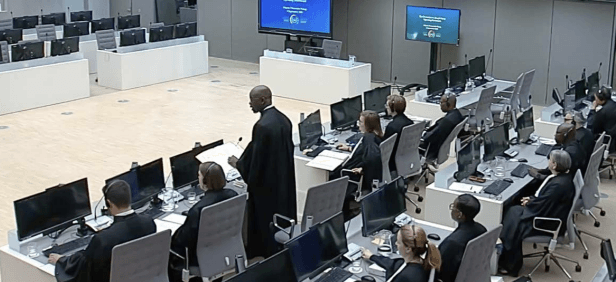This is a version of a memo that by the time you read this will have been sent to the Public Service Commission in response to its request for public input into the question of creating a new post in the public service – the Chief Administrative Secretary.
The post was originally known as Cabinet Administrative Secretary.
I am opposed to (or at least have grave doubts about) this proposal. My grounds are essentially that the proposal goes against the spirit of the Constitution and undermines the position of the public service in Kenya as established by tradition and law, and reinforced by the Constitution.
MODERN PUBLIC SERVICE
I suggest that the main characteristics of the modern public service include professionalism, continuity, and impartiality. And a crucial element of the last — indeed of all of them — is being apolitical.
The public service is there when politicians are not (or not focussed on the task of government and public service). The public service knows how things are done and done most effectively. Any government, and the people, should be able to rely on the public service continuing with its functions with the same commitment after any change of political government.
In the Constitution, the values of public service include: “responsive, prompt, effective, impartial and equitable provision of services.”
My particular focus here is on the word “impartial”. Obviously, a public servant, and the institution, must be impartial as between people and communities whether the possible ground of distinction between them — ethnic, religious, regional, gender or any other (Article 27 of the Constitution).
And of course political, including party political. Of course if affirmative action is in issue then impartiality does not apply in the same way. But partiality on the basis of whether a person, place or community supports the government is clearly prohibited in any circumstances.
The strategic objectives of the Ministry of Public Service, Gender, Senior Citizens Affairs and Special Programmes quite rightly include “Equity and Equality: We will demonstrate fairness and impartiality in service provision to all.”
POLITICAL AND APOLITICAL OFFICES
An important distinction that supports both the role of the public service and the role of elected officials is the distinction between the public servant and the elected official.
The Constitution, I think, draws the distinction clearly – with a few exceptions. (I am not sure everyone has fully understood it, especially at the county level where county executive members seem to be treated as civil servants, at least by the courts).
Traditionally, public servants in Kenya as in many other countries have been prohibited from being openly politically partisan. This is because they have to serve any government with equal commitment.
The structure of a system of cabinet government is that the Minister (Cabinet Secretary or CS) is part of the political government. He or she is there in a policy making role, while the Principal Secretary is the head of administration in the Ministry or State Department (in fact, a Ministry will usually have several departments and PSs).
The function of the PS is to carry out the government’s policies as conveyed through the CS. In fact, since the PS is now a presidential appointment, that relationship should be easier than it might have been in the past.
This does involve is a little blurring of this line in our Constitution. The principal secretaries and the Secretary to the Cabinet are appointed by the President who may also dismiss at least some of them, despite their being offices in the public service. The position of diplomats is also on the borderline.
THE PSC
The Commission is tasked with securing this demarcation. One of the important ways of securing the independence and impartiality of an office holder is the appointment process (and of course the possible agency for dismissal).
The Commission generally establishes offices in the public service, appoints people, and may dismiss them, provided correct procedures are followed. There is the odd provision in Article 132 – that the President may establish such offices on the recommendation of the Commission. However, the President would act “on the recommendation of the Commission”. This suggests that the initiative basically comes from the Commission, though the President may surely make suggestions.
The Constitution makes the Commission independent, and it must not be directed or controlled by any person or authority (Article 249). Suggestions it may receive. Not directions. Not even from the President.
But what is the function of a CAS?
The Commission’s request for public views says that it involves liaising with Parliament and county governments, coordinating between ministries and sectors, representing the CS at meetings, and other things the CS may assign.
Some of this is a bit vague. Of some, one wonders – is it not already within the role of the Ministry/Department civil servants? How does it relate to the role of the PS? The public service needs clear lines of responsibility and accountability.
APPOINTING THE CAS
This is where the issues become particularly apparent. The general principle is that non-political appointments are made by the PSC itself. (As observed earlier there are some exceptions.) Your call for public participation speaks of an open process but then says it leads to a nomination by the President and approval by the National Assembly.
The appointment of PSs involves the Commission submitting a list of names and the President making a selection. Is that is what is intended for CASs? My sense is that this is an exceptional approach – involving as it does two political bodies, and blurs the political and professional. Being exceptional, I suggest it should be limited to the situations spelled out in the Constitution.
A newspaper recently commented on the tasks ahead of the President, including rewarding political loyalties through appointments, including as PS and CAS. This is when alarm bells ring. Would the proposed post of CAS be a matter of appointment by merit or appointment as reward? How can the two approaches be compatible, if full transparency is to be respected? And if the truth is that the objective is political reward, doesn’t this undermine the public service and its role and image of professionalism and impartiality?
I recognise that in other countries, old notions of appointments being made entirely from within the public service have been dying. The UK now advertises many posts. This can bring in new blood and new ideas. But this does not mean that these appointees are chosen by the Executive.
DURATION
The civil service provides continuity, but this is undermined, if positions are only for the duration of a government. When I was a student in the UK, public servants held office only at the pleasure of the monarch! Over the decades, more protection has been given to them and now they cannot be dismissed without principled and fair procedure. The same is true here.
Is it in the best interests of the service that senior staff hold office only for the duration of a government?
And even if it is not true that this whole arrangement, and the apparent merit based system, is just a facade for rewarding political cronies, I strongly suspect this is how it will be viewed, and the Commission will seem to be complicit in a programme of political reward giving.
When talking of the Judiciary we often say, “It is important that not only is justice done but that it must manifestly be seen to be done”. This is because public institutions only fulfill their functions if there is public trust in them. Faith in the public service depends on its procedures being followed and its dual role of loyal (but not obsequious and unthinking) support and fulfillment of the government’s agenda (whatever the provenance or philosophy of that government) being respected.
My fear is that this whole proposal risks blurring important distinctions and weakening public faith in the public service, and making the Commission a tool of the ruling party.
The author writes in her personal capacity.












